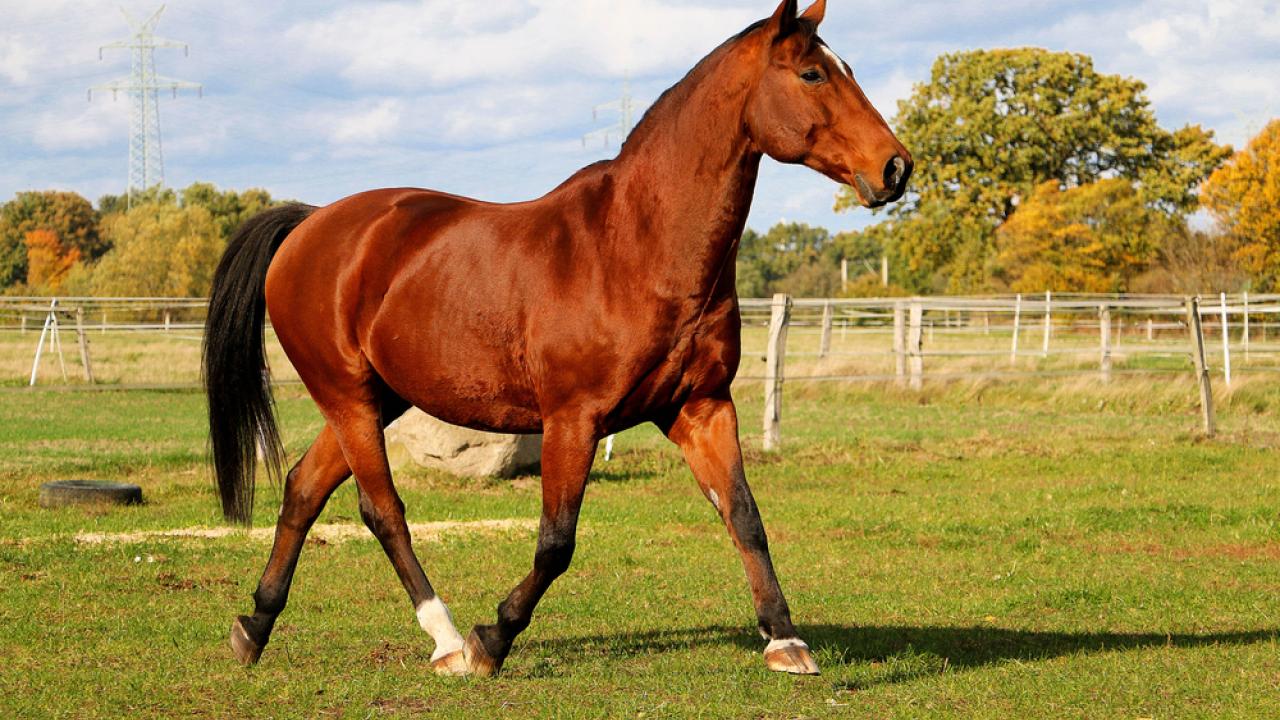
VGL collaborative research investigates the prevalence of known genetic variants in horses with muscle disease
A collaborative study between the Neuromuscular Disease Laboratory and the Veterinary Genetics Laboratory at the University of California, Davis, showed that genetic variants known to cause skeletal muscle disorders were present in one third of horses with clinical diagnosis of muscle disease who were submitted for histopathological examination.
Dr. Aleman, Professor in the Department of Medicine and Epidemiology at UC Davis, an expert in neuromuscular biology and lead investigator of this study noted:
this study has important clinical implications, indicating that both histological and genetic testing are needed to properly diagnose muscle disorders in horses, and that we still have much to learn to fully understand muscle disease in the horse.”
The study investigated 296 horses from 25 different breeds that were clinically diagnosed with muscle disease and submitted for histopathological examination. All horses were genotyped for the genetic variants known to date to cause heritable muscle disorders: hyperkalemic periodic paralysis (HYPP), malignant hyperthermia (MH), polysaccharide storage myopathy 1 (PSSM1), glycogen branching enzyme deficiency (GBED), myosin heavy chain myopathy (MYHM), and myotonia congenita (MC).
Histopathological abnormalities were identified in 79% of cases (233 horses). Genetic variants for five of these disorders were found only in Quarter Horse and related breeds, which was expected, whereas the PSSM1 allele was found in the Quarter Horse and related breeds, Percherons, a Warmblood and a Mustang. The variant causing myotonia congenita was not found in the study population. The most common disease variant detected was My, which was found in 60 of the 90 diseased horses that had at least one genetic variant. This variant causes susceptibility to immune-mediated myositis and non-exertional rhabdomyolysis in QH and related breeds. Horses with two copies of this allele more often displayed a severe phenotype compared to those with one copy, confirming previous findings in other studies.
Disease variants were found in 10% of horses with normal muscle histology, indicating that histological evaluation alone cannot solely be used to rule out muscle disease. Moreover, only half of the horses with confirmed histological muscle abnormalities had a known genetic variant causing muscle disorder in horses, supporting that other genetic variants that cause muscle disorder likely exist.
The full publication can be found at https://doi.org/10.1016/j.jevs.2022.104129
